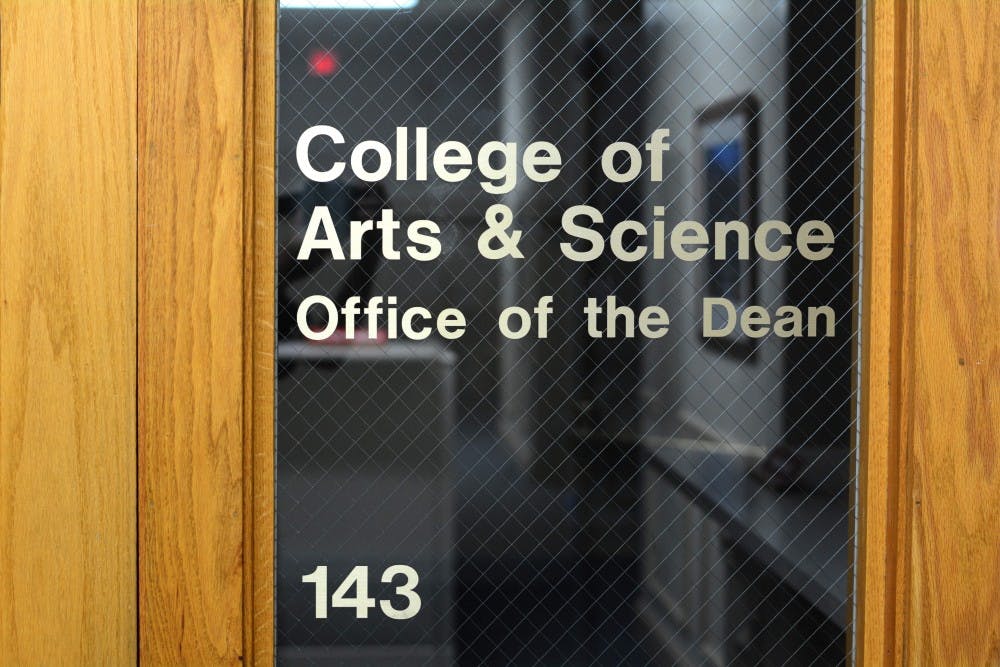Miami University's arsenal of interdisciplinary studies is expanding. These additions include a food systems co-major, an organizational leadership major and a data analytics major. There are also talks of including a new cybersecurity major.
Miami created interdisciplinary studies to give students more flexibility between liberal arts majors.
Food systems
Peggy Shaffer, coordinator of the Institute for Food, said that the food systems co-major allows students to gain empowerment within the global supply food chain - the process which describes how the food from a farm ends up on our tables from production, to processing, to distribution, to consumption and, finally, disposal. The co-major is also meant to appeal to students interested in sustainability.
Shaffer said that students in the food systems co-major will take foundational courses in culture, social science and science. The courses will be designed similarly to Miami Plan courses to add experience and develop a foundation for students. From there, the co-major will mainly be self-designed.
"Food is one of the ways that individuals can make choices that matter, that will make a difference," Shaffer said.
Shaffer said the three P's of sustainability are people, profits and planet, and food is the ideal way to intersect these three and maximize sustainability.
She also said there are estimated to be around 25 people, ranging from business to education majors, who plan to declare this co-major when it becomes available this fall.
Organizational leadership
The new organizational leadership major is part of the College of Arts and Science (CAS) and will be a study of theories of organizational strategy and leadership, with an emphasis on practical application, according to Miami's General Bulletin.
"The organizational leadership major will require some courses in Farmer School of Business (FSB), but our approach comes from the social sciences," said Mathew Regele, assistant professor of sociology and gerontology. "[Farmer's] approach is focused toward human resources and is a fairly targeted degree," Regele said.
This major will focus heavily in communication and analytical critical thinking as well as experiential learning. Regele said the experiential learning aspect includes projects which are meant to give students a leg up in interviews. The major appeals to any field, as it focuses on leadership skills that apply universally.
Enjoy what you're reading?
Signup for our newsletter
Data analytics
The data analytics co-major combines disciplines including information systems and statistics, according to the Miami General Bulletin.
"Adding this co-major would really give me an edge because it opens me up, as a business person, to not only manage but understand, the data behind my company," said junior administrative business major Cameron Smith.
Smith said that understanding data is helpful in any field, and that this co-major is different than the analytics majors in FSB as it focuses on "big data" and the ability to combine this concept with any variety of majors and fields. It's meant to take a liberal arts approach to data.
"Whether you're an art major or a business major, an English major or Biochemistry major, there is data in everything, and it will lead to a better understanding," Smith said.
This co-major has a base in business courses and statistics, and is similar to an FSB major, which could be used as a stepping stone for someone who was not accepted into FSB right away, Smith said.
Cybersecurity
Miami is in the process of building the curriculum of a cybersecurity major according to John Benamati, professor and chair of the Information Systems and Analytics Department. Ideally, it will be one major. However, Benamati said there are talks of having this type of major in three departments which are focusing on this major: FSB, political science and computer science.
Benamati said that this major is being developed on the back of rising concerns of cybersecurity. Many businesses want a professional with this additional expertise.
The political science department, FSB, and the computer science departments will intertwine to accomplish what Benamati sees as a unique major.
"We are hoping to put together something very different from other schools," Benamati said.
Benamati said that schools traditionally focus on the technical side of cybersecurity. Miami wants this interdisciplinary major to focus on managerial aspects, technical aspects and policy in cyber security.
Benamati said that when Miami held a cyber symposium of more than twenty cyber professionals to discuss the addition of this major, they were excited about the prospect of having future professionals who have mastered each of these aspects.
Miami has recognized the need for companies to have professionals in cybersecurity. Benamati said that there is a predicted over 1 million unfilled jobs in this field. This urgency, Benamati said, led to minor in the school of business for the managerial aspect of cybersecurity called Information Security, which is available now.
The collaboration between the Political Science Department, FSB and the Computer Science Department is what will really lead to the success of this major and its graduates, Benamati said.




